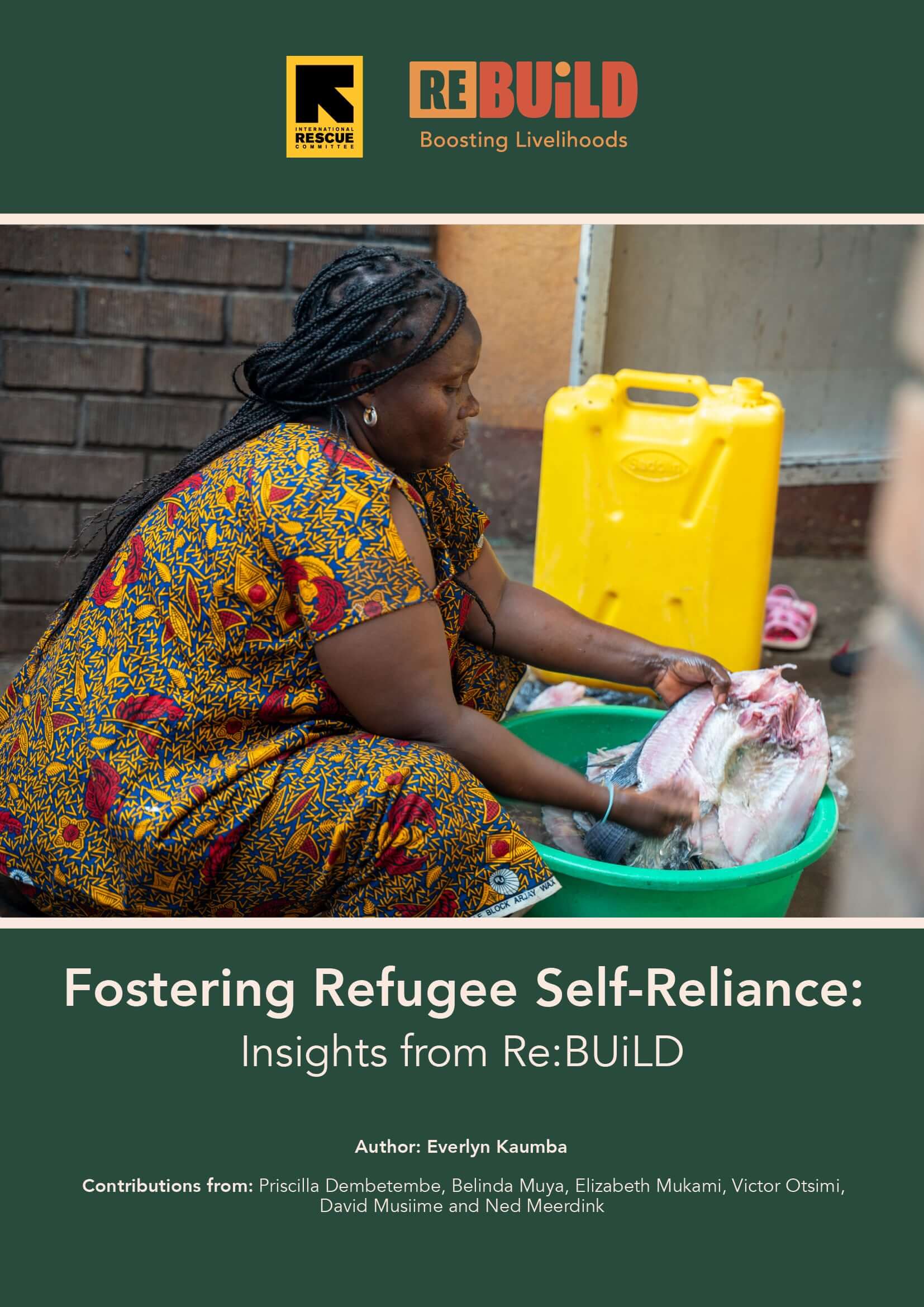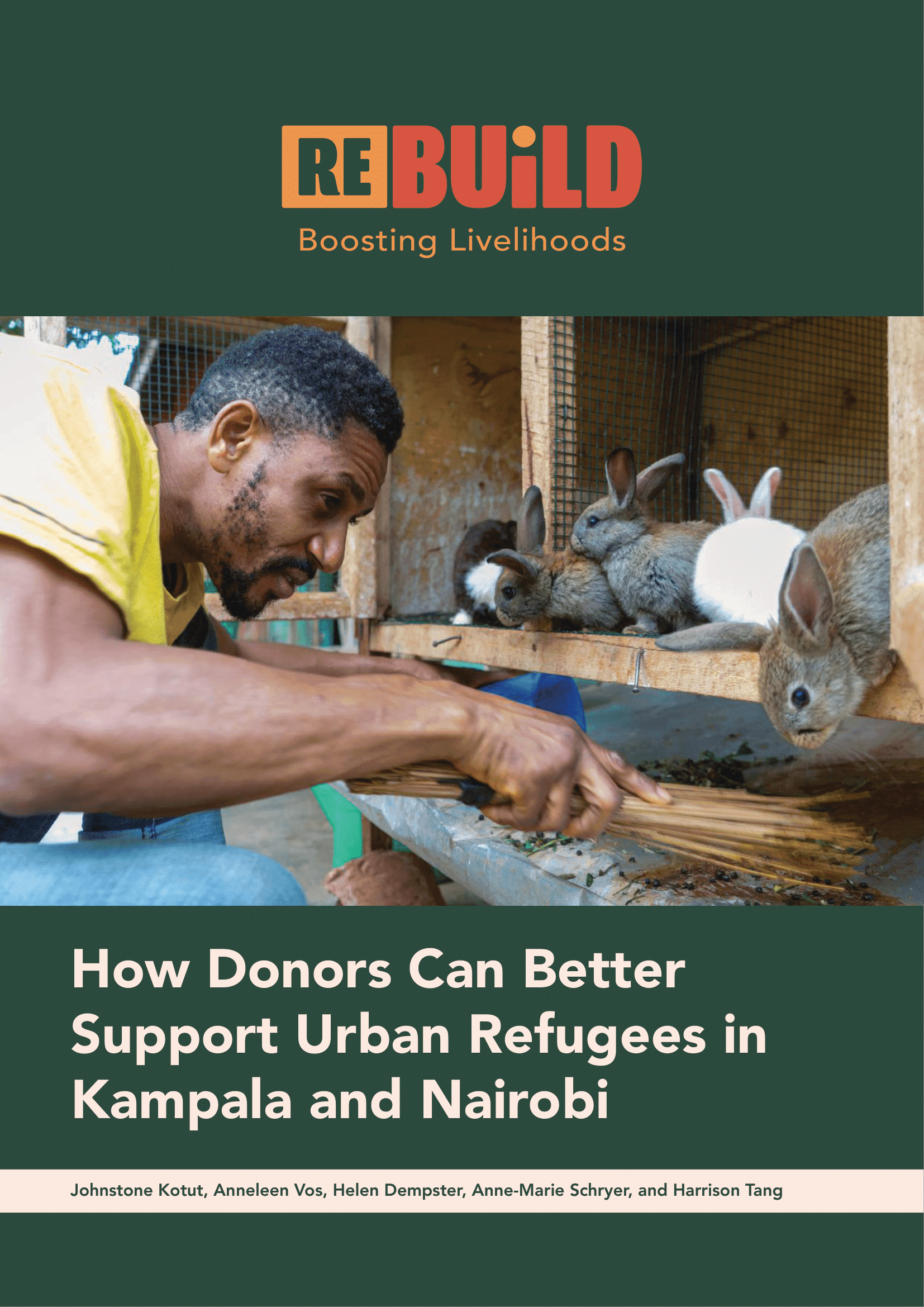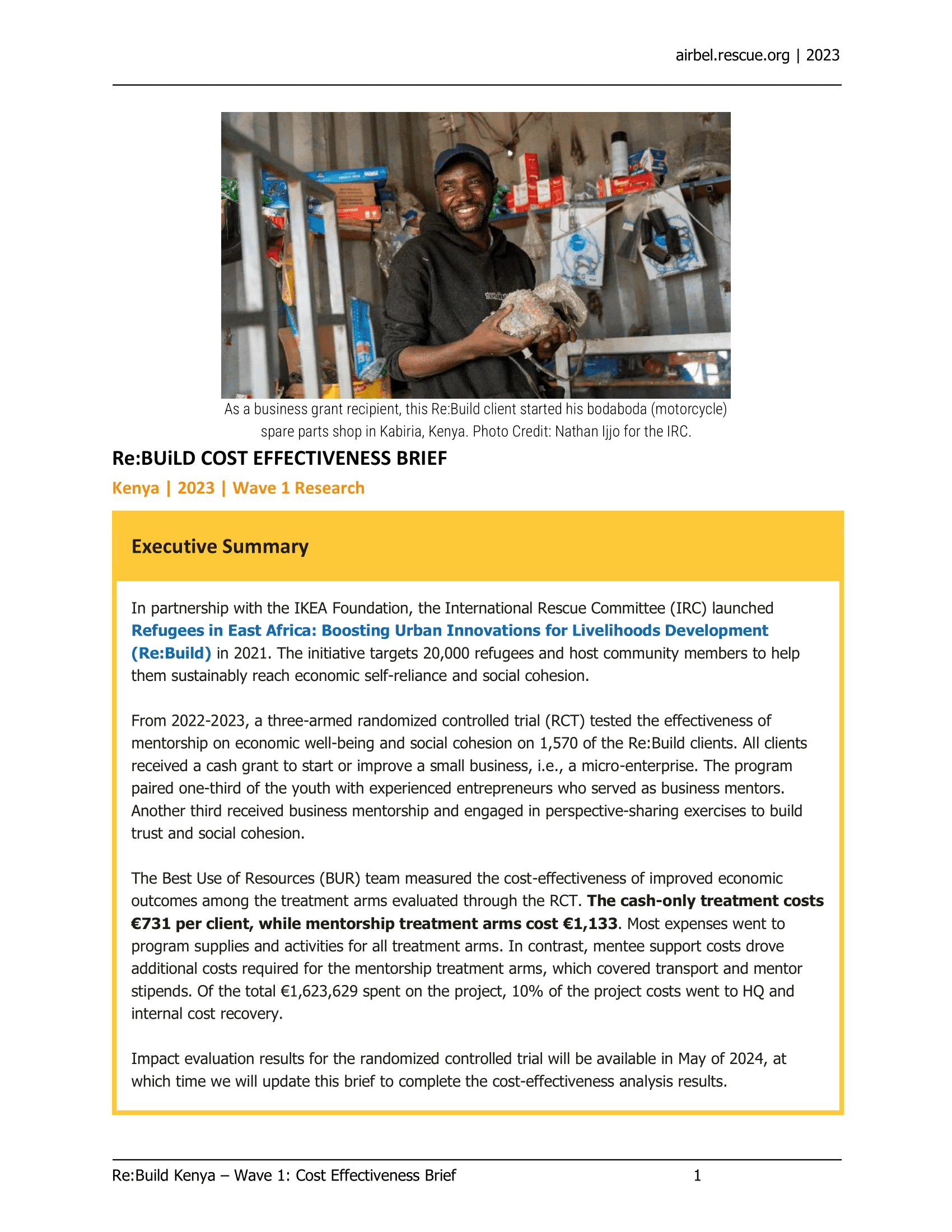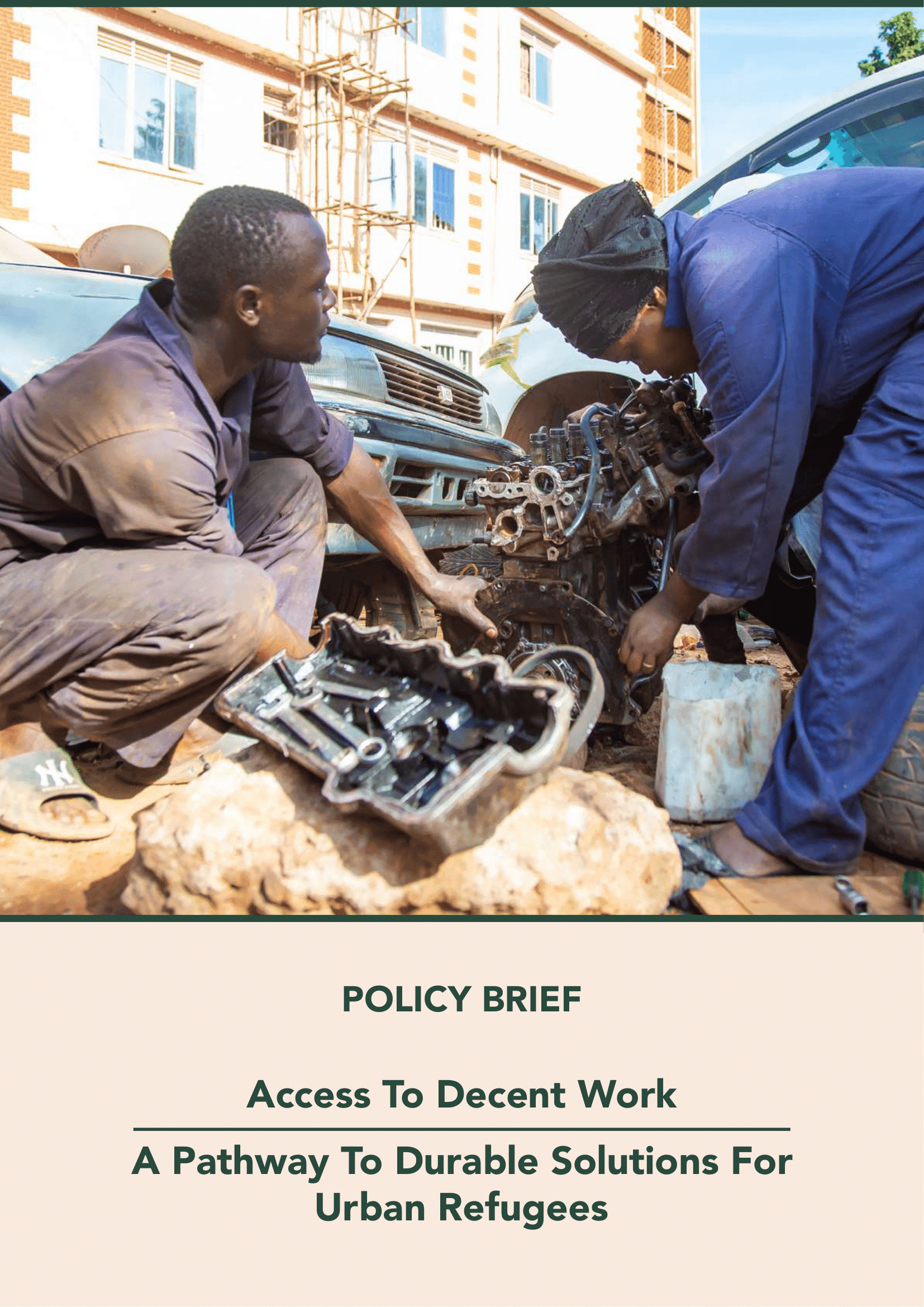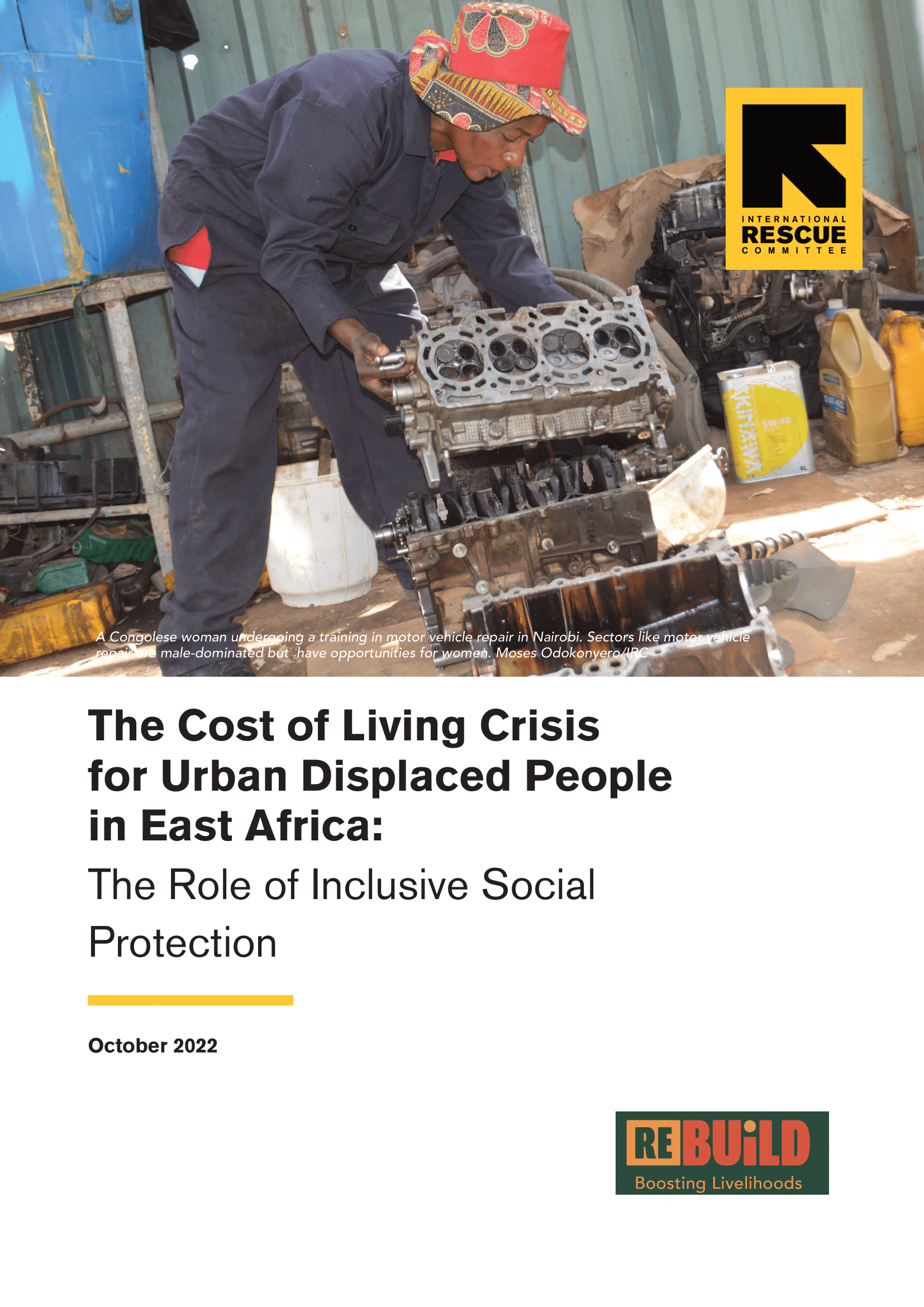Fostering Refugees Self-Reliance: Insights from Re:BUiLD
Fostering Refugees Self-Reliance: Insights from Re:BUiLD
Promoting and measuring self-reliance is a key component of sustainable livelihood promotion, especially in urban settings. Self-reliance is defined as the social and economic ability of an individual, a household, or a community to meet its needs in a sustainable manner. This learning brief examines the insights from the RE:BUiLD Program interventions implemented to support refugees and vulnerable host communities towards achieving self-reliance. The brief also provides highlights on how Re:BUiLD has been able to apply the self-reliance index (SRI) as a tool for measuring self-reliance.
The Re:BUiLD program has been intentional from the onset to support its clients to be able to depend on themselves. The program targets 20,000 clients (60% refugees, 40% host; 60% female and 40% male) to be reached within a span of 5 years (2021-2025). Through a carefully designed set of initiatives, the program has endeavored to equip refugees with the necessary tools and resources to thrive independently. Some of these interventions include supporting skill certification and accreditation, vocational training and facilitating experiential learning via apprenticeships. The aim was mainly to encourage participants to rely on their skills and initiative to succeed in the workforce thus reducing dependance on humanitarian aid and fostering self-reliance. Additionally, Re:BUiLD implemented a microenterprise program that provided business grants to selected clients in Kenya and Uganda with the aim of helping them to start or expand their businesses. The program is also supporting clients through climate smart initiatives and Urban Savings and Loaning Associations (USLA), recognizing the importance of financial literacy and access to capital in fostering economic autonomy. So far, as we approach the end of its 4th year of implementation, the program has served 20,700 clients.
